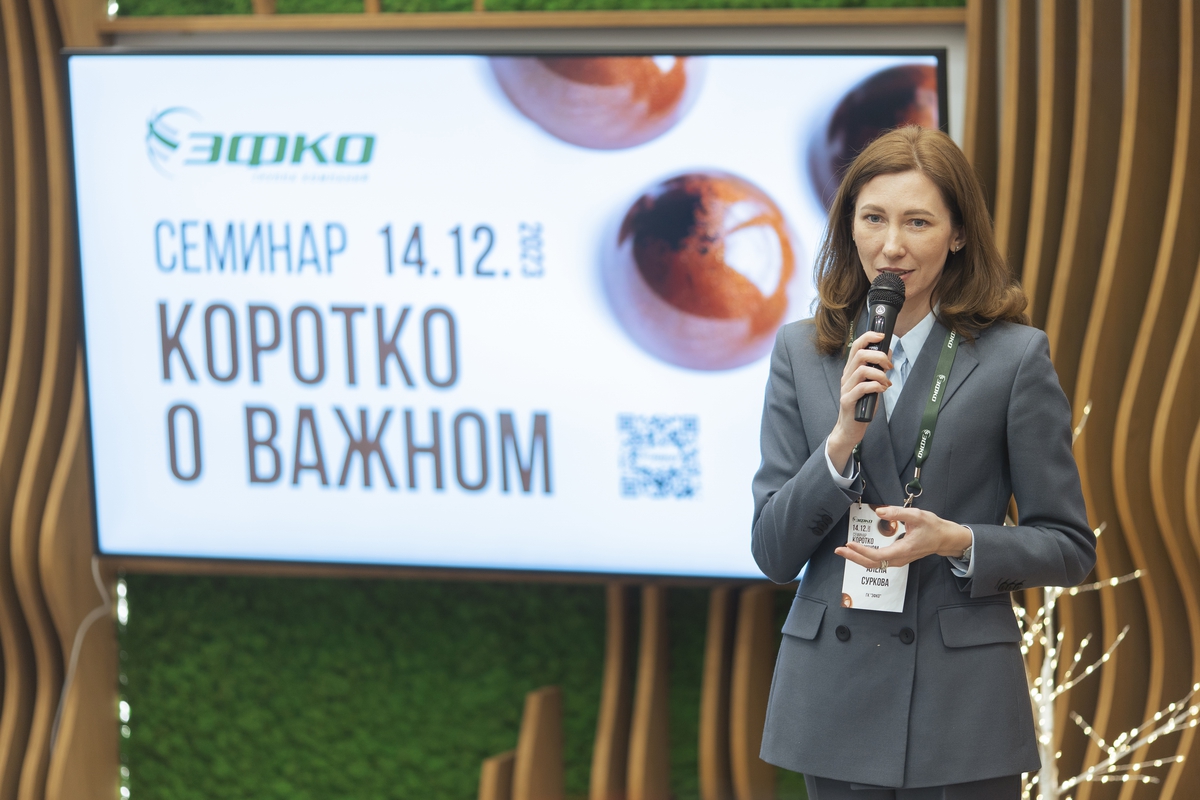The confectionery market can offer products for the most sophisticated consumers. How will new ingredients and technologies change the industry in 2023? What opportunities can EFKO offer to create new flavors? We discussed these and other questions with our partners at the seminar "Key issues in a nutshell" at our R&D center "Food of the Future in Moscow".
There are only seven notes, and no matter how many times you compose a melody, it's always the same.
That's what they say about music.
In some ways, developing new recipes for confectionery is like being a composer. There are not so many ingredients: cocoa, sugar, flour, but there are still secrets that help create completely new flavors that keep consumers coming back to the supermarket for their favorite sweets. The main one is fats, because it is the fats that determine the key characteristics of the finished product. This year, we have launched a number of products that address this challenge.
First of all, a new line of filling fats "Econat" with exotic shea butter in its composition — for pastes, soft and semi-soft fillings in assorted candies. Until now there were no ingredients with shea butter on the Russian market. Shea butter allows to achieve excellent creamy consistency of fillings, makes pastes easy to spread, allows to maintain plasticity in a wide enough temperature range and reveals all the flavor characteristics of recipe components in finished products.
We also treated our guests to an assortment of sweets with different fillings, varying in both consistency and composition. Caramel and hazelnut, jellybeans, currants, rum and chili. The secret ingredient in each of them is the properly selected fat.
"We use nut ingredients for the production of a large part of our confectionery — pralines and assortments," said Tamara Duzhina, Project Manager of LLC United Confectioners, our partner and seminar participant. - I liked the ingredient solutions presented at the seminar. Now we are considering new collections of our confectionery product lines, so it is important for us to be the first to learn about new developments from EFKO”.
Another new solution for the market is a cocoa butter substitute of mixed type. These are fundamentally new ingredients — they are used in the production of various types of confectionery products and compounds. Cocoa butter substitutes of mixed type have taken the best of lauric and non-lauric cocoa butter substitutes — accelerated crystallization of the former and plasticity of the latter in the production of compounds and coated products. And, most importantly, they make it possible to make products with a minimum trans isomer content — less than 2%. In November 2023, the GOST for this product came into force.
“In general, the legislative field for the confectionery industry is stabilizing today," says Tatiana Savenkova, Ph.D., Professor, President of the Association of Food Ingredients Producers, Director of the Research Institute of Quality, Safety and Technologies of Specialty Foods at the Plekhanov Russian University of Economics — "The industry has become very dynamic — large companies are making their own proposals. EFKO helps in the development of new products, in particular, one of them is a cocoa butter substitute of mixed type".
Reducing sugar is a major trend in the confectionery industry. But traditional sweeteners are not always healthy. Some are high in calories, while others can enhance appetite. Recently, scientists have turned their attention to natural sweet proteins derived from tropical plants. They are thousands of times sweeter than sugar and safe. The content of such proteins in plants is quite low, so EFKO specialists have learned to produce them through fermentation — healthy sweets are already a reality!
During the seminar we held a tasting of chocolate coated drops with cocoa butter equivalents "Equilad" — with matcha and lemon, raspberry and mulled wine. In 2023 we expanded the line of equivalents and created cocoa butter improver "Equilad" — such ingredients allow us to make a wide range of confectionery products — from chocolate bars to candies.
“This year was very eventful for our company, including the Food Ingredients division,” says Alyona Surkova, Director for Confectionery Department in the Oils and Fats Division of the EFKO Group. — “We launched production of crystallizers, developed a line of emulsifiers and launched their pilot production. We plan to expand the production into the industrial scale. We have developed new products for the confectionery industry, which will allow us to continue our import substitution program. These results have been achieved thanks to the joint work of EFKO specialists and, of course, thanks to our partners. I hope that at the end of next year we will also be able to share our achievements and results. I wish everyone success in the new year, new ideas and endeavors!”



